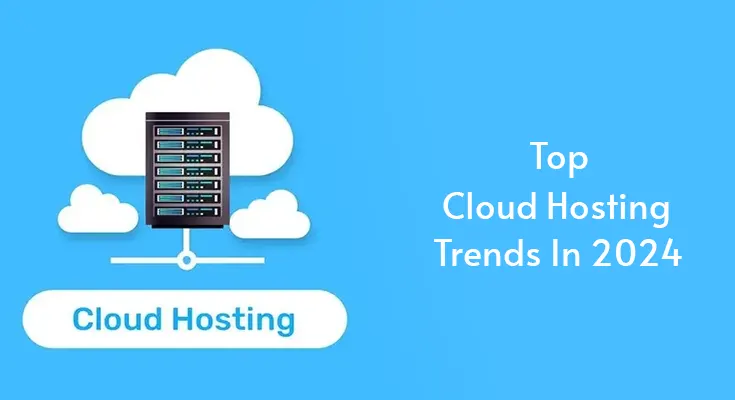Industry trends in 2024 are poised to reshape cloud hosting services, prompting businesses to adapt strategies and embrace the cloud’s transformative potential. Cloud hosting providers are also introducing cutting-edge solutions that cater to organizations, from startups to enterprises, offering unmatched flexibility.
Businesses globally, including those seeking web hosting in India, are embracing these innovations. Let’s discuss the cloud server benefits you can expect from these cloud hosting trends.
Cloud Hosting Trends In 2024
AI-as-a-Service
Artificial Intelligence (AI) is becoming increasingly integrated into cloud hosting services. The rise of AI-as-a-Service (AIaaS) is empowering organisations to harness the power of machine learning and advanced analytics without the need for extensive in-house expertise or infrastructure.
This trend is particularly beneficial for smaller businesses, as it democratises access to sophisticated AI tools and capabilities previously reserved for large enterprises with substantial resources.
Edge Computing
Edge computing is becoming more popular in cloud hosting because of the growing number of Internet of Things (IoT) devices and the need to process data in real-time. This approach involves processing data closer to its source, reducing latency and enhancing performance.
Cloud hosting providers are expanding their offerings to include edge computing solutions, enabling businesses to leverage cloud server benefits while addressing the unique requirements of IoT and time-sensitive applications.
Sustainable Cloud Hosting Practices
Environmental consciousness is becoming a critical factor in cloud hosting decisions. The best cloud hosting providers are now focusing on sustainable practices, aiming to reduce the carbon footprint of their data centres.
This trend uses renewable energy, energy-efficient hardware and revolutionary cooling systems. Organisations are increasingly considering the environmental impact when choosing cloud hosting services, making sustainability a key differentiator in the market.
Serverless Computing
Serverless computing is gaining traction as a cloud hosting model that further abstracts infrastructure management. This trend frees developers from worrying about server provisioning and scalability so they can concentrate just on building code.
The benefits of cloud hosting in this context include reduced operational overhead, improved developer productivity, and more efficient resource utilisation. Serverless architectures are growing in popularity as a cost-effective and efficient alternative for companies trying to simplify their development processes.
Enhanced Security and Compliance Measures
Cloud hosting companies are boosting security as cyberattacks become more frequent and sophisticated. Advanced encryption, multi-factor authentication and AI-powered threat detection are becoming standard offerings.
Additionally, compliance with data protection laws is very important, with cloud hosting services providing built-in tools and processes to help businesses meet stringent regulatory requirements.
Low-Code and No-Code Cloud Services
The shortage of skilled IT professionals is driving the adoption of low-code and no-code cloud services. These platforms allow non-technical people to design and deploy applications with no coding experience.
This democratisation of app development is a significant trend in cloud hosting, allowing businesses to innovate rapidly and address specific needs without relying heavily on specialised development teams.
Data Fabric and Mesh Architectures
As organisations grapple with data silos and complex multi-cloud environments, data fabric and mesh architectures are emerging as solutions. These approaches provide a unified data management framework across diverse cloud and on-premises systems.
Cloud hosting providers are incorporating these architectures into their offerings, enabling businesses to maintain data consistency and accessibility across their entire IT ecosystem.
Conclusion
The cloud hosting landscape in 2024 is characterised by innovation, integration and increased focus on user-friendly solutions. Understanding these patterns is essential for making cloud hosting choices as organisations transition to the cloud.
The benefits of cloud hosting, from cost-efficiency to scalability, are more accessible than ever, but navigating the options requires careful consideration of organisational needs and long-term objectives.




